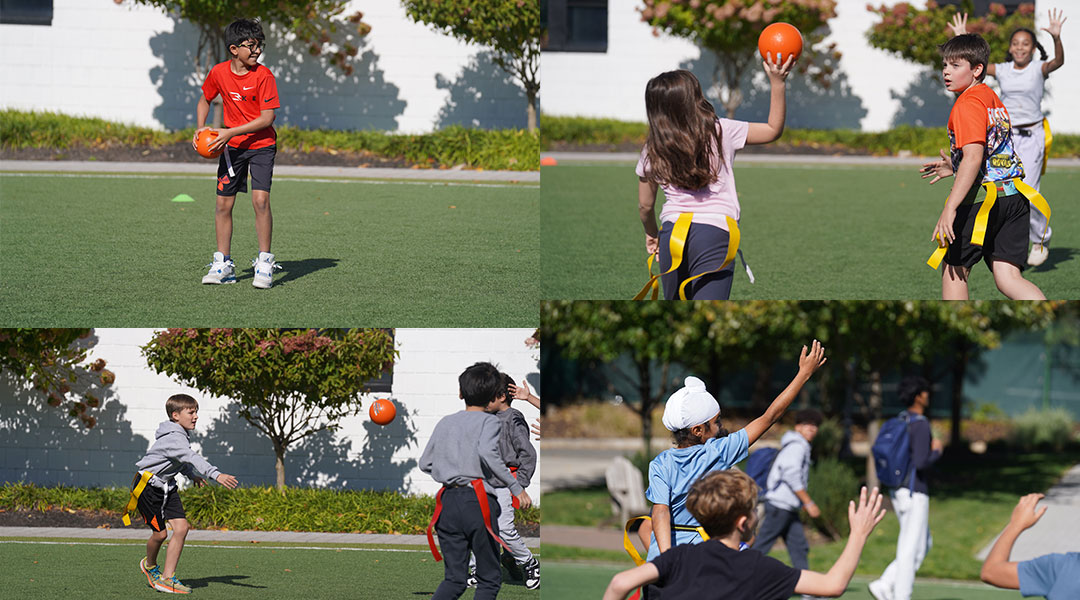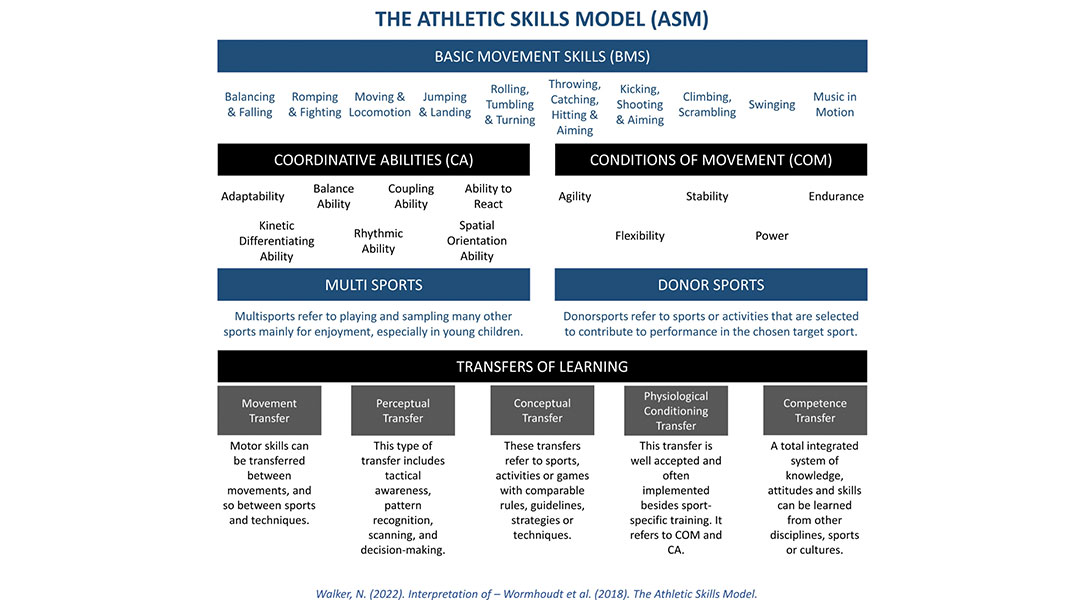
Play with Purpose
Submitted by Kim Franco, Health & Wellness
Play is an essential part of the learning process. As children play, they develop the cognitive, social-emotional and physical skills needed for lifelong fitness. Students develop their curiosity, problem-solving, intentionality, flexibility, communication skills, and motor skills.
Everything we do during Health and Wellness is a game focusing on fundamental movement skills before moving to basic sports skills. Children develop muscular strength through basic motor movements, and if introduced to sports skills before movement skills, they often struggle to learn them and can risk injury. Sometimes, they even get discouraged and quit!
Mastering fundamental movement skills makes learning sports skills easier for children while opening the door to physical literacy. This combination of skills unlocks a world of new sports and physical activities. Think about how many different sports a child can play by being able to catch and throw. It also contributes to developing a more confident and skilled athlete and individual.
The Athletic Skills Model illustrates how participating in various movement skills and sports during health and wellness, recess, and outside of school helps a child develop and succeed in their main or favorite sport. Units progress so that the skills used in the previous unit will help develop the new skills utilized in the next unit. Beginner tennis lessons start with throwing and catching before the racket is introduced. We use a similar concept.
Threaded within each early childhood movement program are:
- Fundamental movements, simple games and movement vocabulary
- Physical Activity, Healthy Living and Wellness
- Dance and Rhythmic Activities
- Social-Emotional Learning
- Critical Thinking Skills
The early childhood movement units:
- Appreciating Living Creatures and the Environment (September/October)
- Super Students (November/December)
- Galactic Explorers (January/February)
- Community Awareness (March/April)
- Going to the Zoo (May/June)
Threaded within each first through fifth-grade lesson are:
- Fundamental Movement Skills/Application of skills from basic to complex
- Movement Vocabulary
- Physical Activity, Fitness, and Wellness
- Dance and Rhythmic Activities
- Social-Emotional Learning
- Critical Thinking Skills
Thematic Units grades 1-5:
- Cooperative Games and Challenges: (September, June) & Outdoor Pursuits: Tag Games, Scavenger Hunts, Mapping Skills (November)
- Tag Games and Outdoor Invasion Games and Sports (October) and Indoor Court Invasion Games and Sports (December, January)
- Target Games (February)
- Striking and Fielding Games (March, April)
- Net and Wall Games (May, June)
Let’s keep finding fun activities for children to explore!

